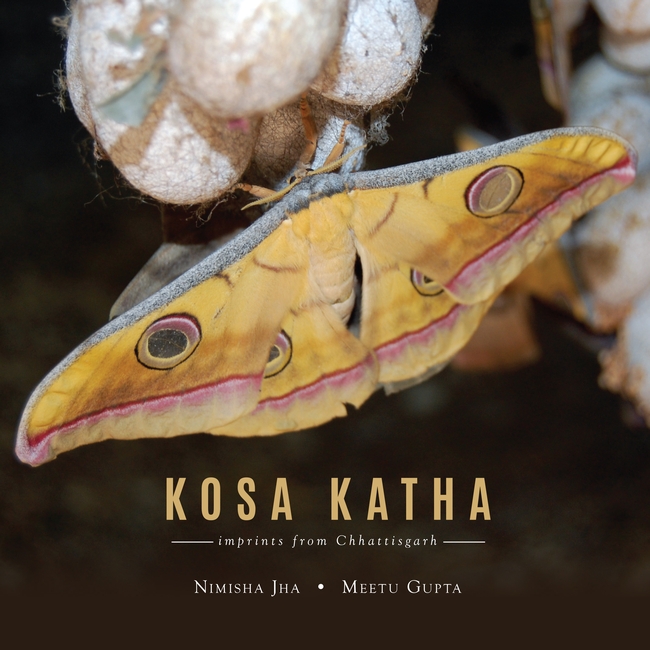
© 2020 Penguin India

The book weaves in multifaceted accounts of the various processes and stages of its creation, from cocoon cultivation to silk yarn production. There are multiple stakeholders all along the assembly line, which means it generates layers of employment opportunities in silk manufacturing as an industry. The book also highlights the impact of kosa on the local population and discusses its socio-economic aspects, the way it affects livelihood, the importance of women in the sector and its wider effects on the environment. Emphasis has been placed on best practices in the business and the use of technology, underlining the emergence of mechanized techniques, thus making it a lucrative profession and establishing silk as the real queen of textiles.
The idea behind Kosa Katha is to compile information to address the existing gaps caused by poor documentation, incomplete literature and distorted figures, which have not been able to give a holistic view of this flourishing trade. The book also gives valuable suggestions so that the kosa sector turns out to be a highly rewarding and respectable vocation in times to come. In a bid to sustain the positive efforts in the sericulture industry, the hope is to connect the dots so that kosa can find its place in anenvironment where production is declining and weavers are gradually vanishing from the forefront.
Imprint: India Penguin Enterprise
Published: Jun/2019
ISBN: 9780670092314
Length : 110 Pages
MRP : ₹2499.00
Imprint: Penguin Audio
Published:
ISBN:
Imprint: India Penguin Enterprise
Published: Jun/2019
ISBN:
Length : 110 Pages
MRP : ₹2499.00
The book weaves in multifaceted accounts of the various processes and stages of its creation, from cocoon cultivation to silk yarn production. There are multiple stakeholders all along the assembly line, which means it generates layers of employment opportunities in silk manufacturing as an industry. The book also highlights the impact of kosa on the local population and discusses its socio-economic aspects, the way it affects livelihood, the importance of women in the sector and its wider effects on the environment. Emphasis has been placed on best practices in the business and the use of technology, underlining the emergence of mechanized techniques, thus making it a lucrative profession and establishing silk as the real queen of textiles.
The idea behind Kosa Katha is to compile information to address the existing gaps caused by poor documentation, incomplete literature and distorted figures, which have not been able to give a holistic view of this flourishing trade. The book also gives valuable suggestions so that the kosa sector turns out to be a highly rewarding and respectable vocation in times to come. In a bid to sustain the positive efforts in the sericulture industry, the hope is to connect the dots so that kosa can find its place in anenvironment where production is declining and weavers are gradually vanishing from the forefront.
Nimisha Jha has done her masters in Sociology from Delhi School of Economics after which she has worked in consultancy firms KPMG and Ernst and Young in social sector advisory services. To pursue her dreams she left her corporate job to join the Government of India. Presently, she works with the government and is on deputation to Government of Chhattisgarh. She is passionate about ecology, social issues and culture. Silk, an important component of Indian heritage, piqued her interest during her stay in the Kosa producing districts of Chhattisgarh.
Meetu Gupta, a conservationist, environmentalist and founding member
of the NGO Conservation Core Society, works for wildlife and environment conservation in central India. After doing her masters in wildlife sciences, she studied and worked at various national and international institutions and organizations. She is a member of national and state level committees on wildlife and forest conservation.